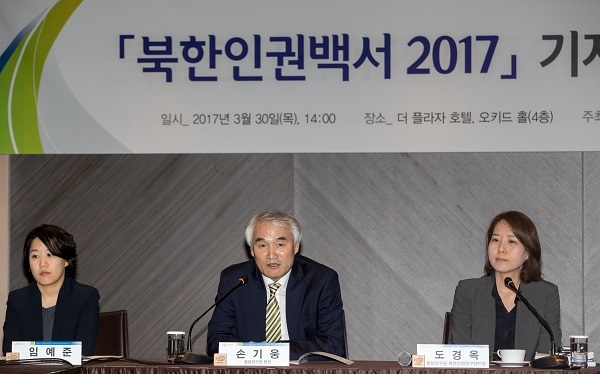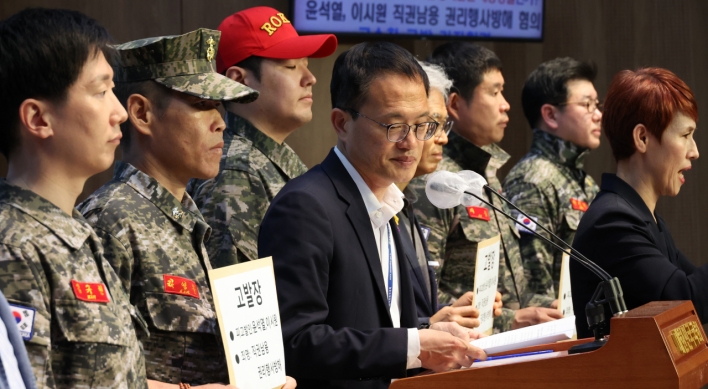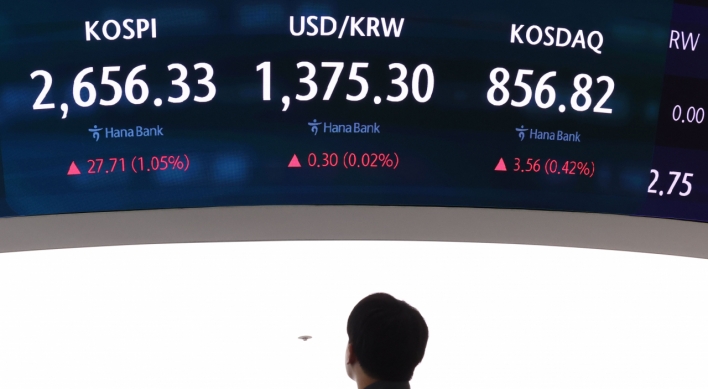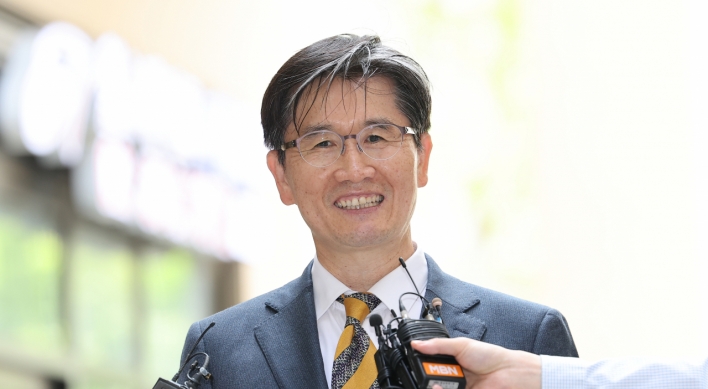Making narcotics now subject to death penalty in NK: think tank
By Shin Hyon-heePublished : March 30, 2017 - 16:18
North Korea has newly added the illegal production of opium and other narcotics as subject to the death penalty in another step back for human rights, a state-run think tank in Seoul said Thursday.
The Korea Institute for National Unification introduced the gist of its annual white paper on human rights in North Korea, which will be formally released next month. Based on interviews with 196 defectors and other surveys last year, the latest edition details the regime’s rights breaches on the right to life, public executions, gulags, border controls, women and children and overseas laborers, especially over the last five years.
The Korea Institute for National Unification introduced the gist of its annual white paper on human rights in North Korea, which will be formally released next month. Based on interviews with 196 defectors and other surveys last year, the latest edition details the regime’s rights breaches on the right to life, public executions, gulags, border controls, women and children and overseas laborers, especially over the last five years.

Until a 2013 amendment of its criminal law, North Korea had sentenced capital punishments for crimes including treason, terror and conspiracy. Narcotics manufacturing was previously punishable by up to five years of hard labor.
The latest addition runs counter to the UN International Covenant on Civil and Political Rights, of which the country is a member, said Do Kyung-ok, director of the Center for North Korean Human Rights Studies within the institute.
“The change may attest to how prevalent opium and drug production is there,” she said at a news conference in Seoul. “Nevertheless, it doesn’t serve the covenant’s basic interpretation, and we see it as backtracking in terms of the guarantee of the right to life.”
On border controls, the Kim Jong-un regime has been sharply stepping up its efforts since the second half of 2015, installing high-voltage electric fences along the Tumen River, which flows along part its border with China and provides an escape route to those seeking to flee. In August 2014, authorities evicted some 200 households and demolished their homes in Samjiyon County, Ryanggang Province, where the wooded environment made it easier to cross the river.
“The campaign gave birth to a new kind of forced migration under the Kim Jong-un leadership,” another KINU fellow Han Dong-ho said.
“A majority of the 30,000 defectors living in the South are the lower class from the northern border regions, and we’ve learned that the authorities didn’t even take any measures after forcing them out of their homes.”
From 2013-16, the think tank collected cases of North Korean laborers in China, Russia, Qatar, the United Arab Emirates, Kuwait and Libya to look into their living conditions. The study concluded that the workers, though largely voluntarily dispatched, faced forced labor because they were required to pay back secondment costs, with their forms of identification confiscated by managers.
The regime also continues to execute not only executives, but rank-and-file citizens throughout the country, often coercing other residents to watch, KINU said. It cited a defector’s testimony that about 300 residents in Ryanggang Province were instructed to watch a public trial and ensuing execution in a schoolyard in August 2014.
The National Intelligence Service also said in 2015 that at least 70 high-profile officials had been killed since Kim took power.
Throughout all types of detention facilities, violence and cruel treatment have been “routinized,” researcher Lim Ye-joon said, noting that conditions were particularly harsh at border detention houses run by the Ministry of State Security, where mostly failed escapees are held.
Nationwide food production slightly improved last year, but persistent shortages prompted North Koreans to resort to underground markets, private farming and other self-help measures.
By Shin Hyon-hee (heeshin@heraldcorp.com)










![[Weekender] How DDP emerged as an icon of Seoul](http://res.heraldm.com/phpwas/restmb_idxmake.php?idx=644&simg=/content/image/2024/04/25/20240425050915_0.jpg&u=)

![[Today’s K-pop] NewJeans' single teasers release amid intrigue](http://res.heraldm.com/phpwas/restmb_idxmake.php?idx=644&simg=/content/image/2024/04/26/20240426050575_0.jpg&u=)





![[Herald Interview] Mistakes turn into blessings in street performance, director says](http://res.heraldm.com/phpwas/restmb_idxmake.php?idx=652&simg=/content/image/2024/04/28/20240428050150_0.jpg&u=)
